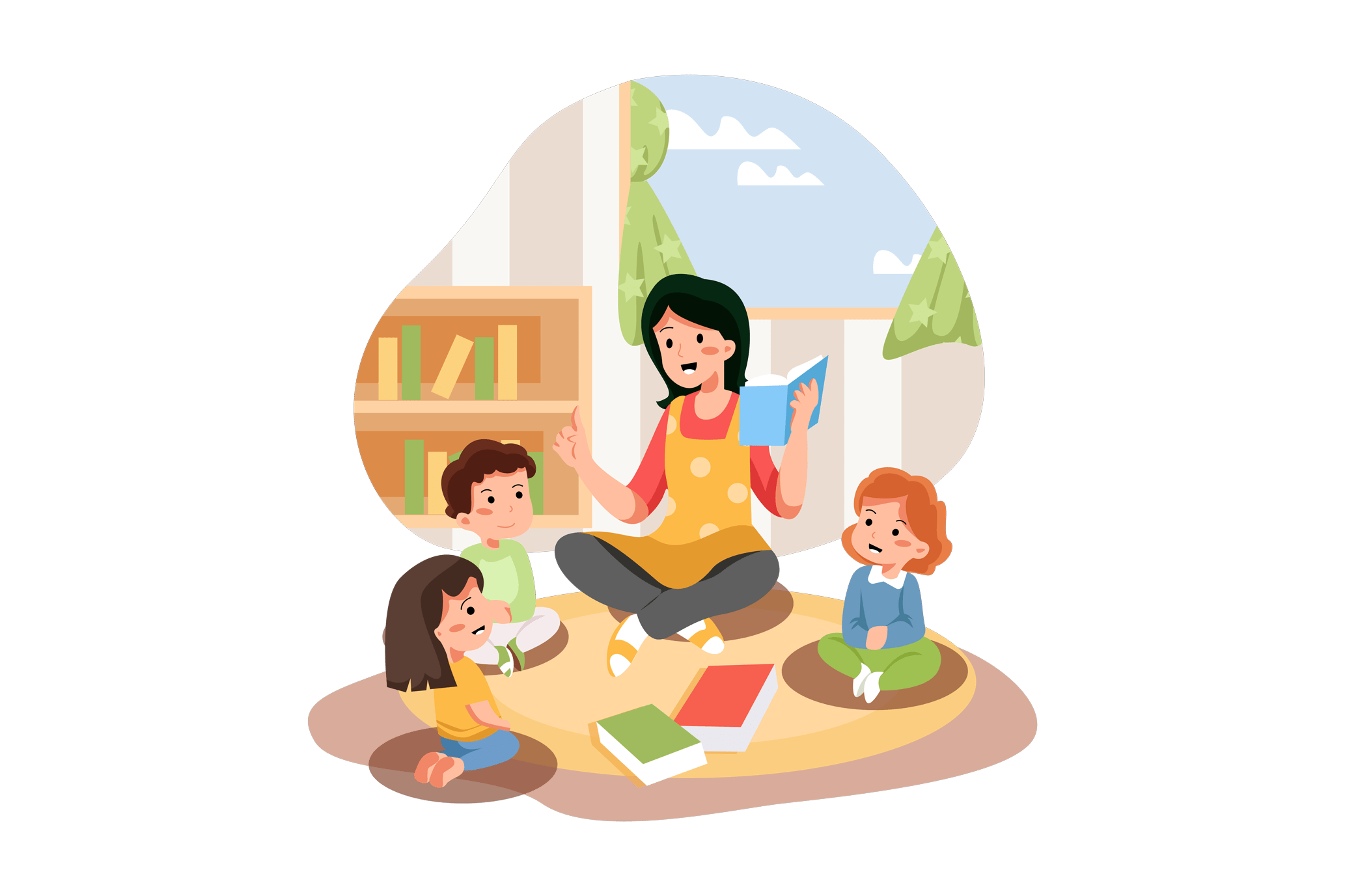We all know the best thing out of so many we can do as a parent or a teacher is to get the children to read books; but the million-dollar question is how exactly we embed that habit into the children’s routines.
How parents, guardians, teachers and at-home caregivers can support reading acquisition at home is a topic that I often get to discuss with our trainee teachers. After all, literacy skills are part of the core minimum, also often referred to as functional skills. Reading skill alone contributes to enhanced brain activity, development of critical thinking, increased empathy, building imagination, social-emotional skills, and so much more.
Let’s look at some ideas worth exploring.
Rewarding to Read
A reward system would always be handy. For instance, the child gets £1 for every book they read. Here spoiling the kid with money is a concern, but a condition could be placed on spending the money. Not effective in the long run though, because this way your kid could also lose the "intrinsic motivation", says Alphie Kohn (Parenting Expert). Which means they can develop a habit of depending on a reward every time they put effort into accomplishing something. It's an interesting and fair point; however, it fails on the premise that the incentive systems in real-life work on the same principle where people get rewarded for doing good things that they should be doing anyway without a reward. Furthermore, it is almost always likely to motivate the children to read more than those who do not get any incentive to read more. The key is that parents or caregivers take rewards as a catalyst and not a subject in the process; know to pull back once the children start drawing interest on their own from reading.

Read to make them Read
Imagine if Auguste Rodin had thought of giving ‘The Thinker’ some children, there would be small sculptures beside him struggling to pose to think; The Little Thinkers, they would say.
I was delighted and amazed when one day, on my commute, I witnessed a mother reading a book on the bus with her child sitting in her lap, holding a children's book. And as the mother turned pages, the little one would too. We don't acknowledge enough the fact that parents have, are and always will be imitation models for their children. There have been countless studies proving how kids look up to their parents in the early years to figure out how they are supposed to behave. It is known that in our species, the ability to learn from others' actions sets us apart. Meltzoff & Whiten (2009) work on how Human infants and toddlers have a rare inclination to imitate a broad range of acts. Even if acts are not fully understood, children who can imitate them with exact details are more prone to gaining opportunities to discover a deeper meaning and cognitive understanding of the acts, which they initially only imitate for the sake of imitating.
This is one of the simplest and the most effective ways of getting your children to read. You would not have to lose a dollar to your child; you only have to sit with them to read; make sure that your child observes that reading brings you joy. This would be easy for parents who are avid readers and have a lot of books at home, establishing reading as a ground habit in the daily family routine.

Recreate what they Read
Parents, guardians, caregivers and teachers collaborating with the children to make the reading a successful initiative is also critical. One of the many ways in which this could be achieved is through reproducing what the children have read by having focused discussions with children about events and principles covered in the book. This would also deliver an added advantage of polishing the comprehension and communication skills of the children. And most importantly, it will create an intrinsic motivation in the children to read more, read with passion, and develop a greater understanding, as they would want to get involved in constructive discussion with their parents, guardians, caregivers and teachers. Children also love to act out their imagination. My mother used to tell me how when her grandma told her stories at night. All her siblings would climb the terrace the next day and play out its characters. Although her grandma thought that the kids were making fun of her tales, they were simply acting on their imaginations. So it might be a good idea to create and recreate scenes from story books in classroom settings or at home. This could help indulge the child in reading since they would anticipate working on a performance or a discussion.
Book-Clubbing to Read
All it takes is a couple of people reading the same book; a social activity for social beings. Book Clubs are greatly impactful when it comes to instigating reading skills and expanding reading repertoire. This idea of Book Clubs is quite popular among adults and increasingly in children too. Schools are growing on the concept of Summer Reading Clubs, camps and library-based. Research has shown that children who enrol in SRCs come out better equipped with reading and comprehension skills and develop innate motivation and interests in reading. Petrich (2015) established that these book clubs not only facilitated reading but also developed social-emotional learning and self-motivation. The best thing is that if you can't have your kids join a club, you can make your own. Pick a theme, name the club, decide who can join, agree on a meeting location (Skype would do too!), ask other parents to volunteer, plan a meet-up schedule, have snacks for kids or other playful activities to keep kids engaged such as drawing book covers or making fun bookmarks. And here you have your own book club for your early graders.

Remind them to Read
Does not necessarily mean that you ask them to read repeatedly. It could be stretched over to encompass countless reminders; subtle or loud; verbal or non-verbal; giant gestures or small hints. "Surrounding kids with books at an early age gets them hooked," says Alice Sterling Honig (Child Development Expert) at Syracuse University, New York. Leave a couple of books here or there. On the coffee table, under the lamp, on a sofa, or even on the floor of a car. Wherever they are most likely to be picked in a moment of idleness. Just don't keep them on the shelves and out of reach. Instead, let them carry books around. Have a quiet corner in the house stacked with books and a cosy bean chair; perfect for your child to hang out and read. Have them involved in the making of that perfect nook. Let their birthday gifts be books from their favourite authors. Read aloud even when they don't need it. Have them read the book and then watch the movie; it’s more effective for ‘reluctant readers’ and ‘visual learners’. Arrange library visits and turn them into an adventure where they can explore the magical world of reading. And take books with you the next time you visit a park or commute.
Once you are caught up with the child's learning pattern, it's easier to equip them with the ideas that would suit them and motivate them to read ultimately improving their reading skills.


One Response
Great article! As an educator, I couldn’t agree more with the importance of developing strong reading skills in early grades. Your tips for improving reading skills are very practical and easy to implement. Keep up the good work!